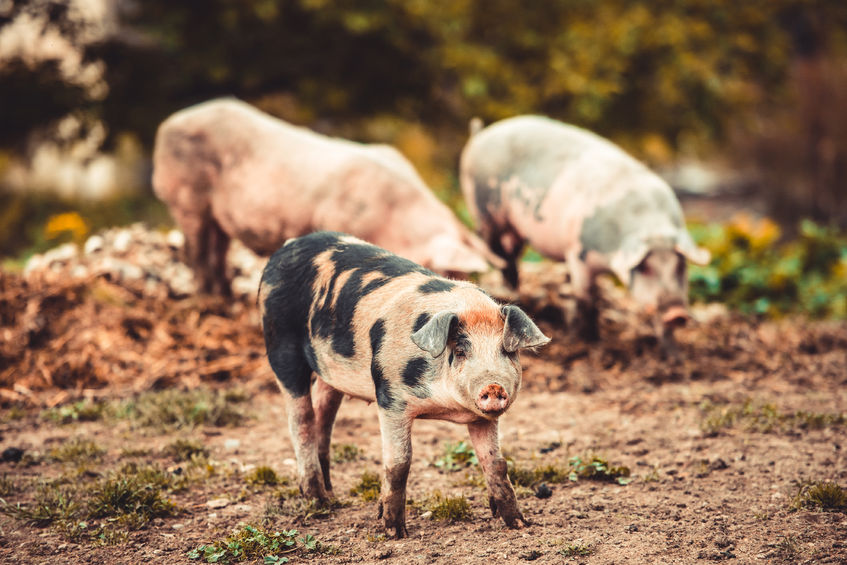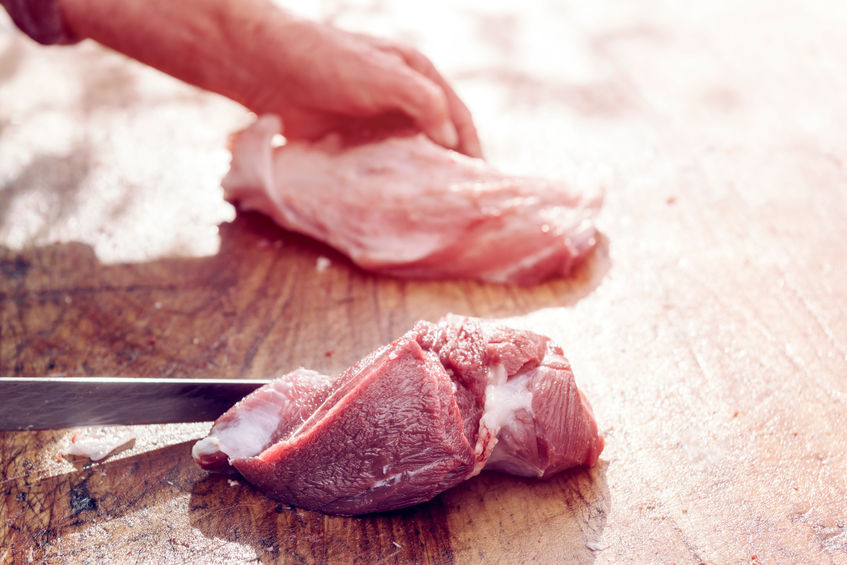Pig industry and experts in food safety denounce MRSA scare in pork

The finding of livestock-associated MRSA in samples of pork sold in supermarkets 'should not be seen as a surprise or as a significant public health risk', according to experts in the field.
On Monday, the Guardian reported on tests showing three samples out of 97 UK-produced pork products sold in Asda and Sainsbury’s were contaminated with the superbug strain which it said can be resistant to ‘even the strongest antibiotics’.
The Guardian, working with the Bureau of Investigative Journalism (BIJ), said it had also established that a loophole in import regulations is leaving an open door for MRSA CC398-infected live pigs from countries such as Denmark, where the disease is rife.
Scientists involved in the field have sought to reassure consumers the risks remain low.
Nicola Williams, Professor of Bacterial Zoonotic Disease at the University of Liverpool, said: "Current data does not suggest that livestock-associated MRSA is common among UK pig herds.
"Even if herds are infected with significant levels of the bacteria, the extent of contamination of meat with MRSA will be much lower than compared to food-poisoning bacteria such as Salmonella, so the risk of transmission to people will be lower."
'Well-known, but rare safety risk'
She advised that adopting good hygiene practices in the kitchen and washing your hands when handling raw meat and cooking meat properly should minimise any risk.

She added: "It is important to remember that even if someone does become colonised with MRSA it does not mean they will necessarily develop disease or illness.
"People can carry MRSA in their nose and throat without it causing an infection; however, it does mean that by carrying the bacteria you may be more likely to develop a subsequent infection - if you undergo surgery for example, or if you are immunocompromised.”
Prof Mark Woolhouse FMedSci, Professor of Infectious Disease Epidemiology at the University of Edinburgh, said: "Livestock acquired MRSA is a well-known, but rare, food safety risk.
"It has been found in food animals, in food and occasionally in people for many years.
"It must be taken seriously but it has shown no sign of causing a pandemic and this small study does not change that assessment.
"However, the study does indicate the value of continued surveillance and monitoring of all food-borne bacteria, especially those that are resistant to antibiotics."
Prof Ross Fitzgerald, Chair of Molecular Bacteriology at The Roslin Institute, University of Edinburgh, said: "The identification of MRSA CC398 in UK supermarket samples has been reported previously and is not surprising considering the high prevalence of MRSA among pig populations in some countries in Europe.
“However, even in Denmark, food-borne transmission of MRSA to humans is very limited. There is no evidence that the presence of MRSA in pork will lead to a pandemic in human populations."
'Sensationalist' reporting
The National Pig Association has also responded to the MRSA claims, with NPA chief executive Zoe Davies calling the ‘sensationalist’ report needed to be put in context.
"LA-MRSA is of negligible risk to the health of the general public, with the main risk being to agricultural workers with prolonged exposure to livestock," said Miss Davies.
"Defra and the National Pig Association recommend that anyone importing breeding pigs to Britain should have them screened for LA-MRSA.
"The NPA Imports Protocol, which is a requirement under Red Tractor Assurance (92% of the pigs produced in the UK), recommends that live pigs intended for import and the herds from which they originate are tested for MRSA.
"The Government is currently reviewing options for increased surveillance of LA-MRSA, which will be proportionate to the very low health risk.
"There is no specific UK or EU legislation for the control of MRSA in companion animals or livestock.
"Government is constantly reviewing the range of surveillance and control options available for new and emerging disease situations, including those involving AMR, but clearly such measures must be demonstrably proportionate to the risk to human and animal health.
"Nonetheless, we as an industry need to ensure we do everything we can to minimise the introduction of LA-MRSA into the UK pig breeding herd as these stories can be reputationally damaging.
"We therefore strongly urge anyone importing breeding pigs to Britain to have them screened for LA-MRSA," Miss Davies concluded.








